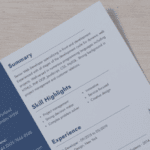- Profile Evaluation
- Countries
Beginner's Doubts
Study in USA
- Exams
- Finances
- Documents
Beginner's Doubts
Statement of Purpose (SOP)
Letter of Recommendation (LOR)
Other Documents
- Case Studies
Case Studies
- How Udit got an admit from University of Rochester With Rs. 28 Lakhs Scholarship
- 90th ranked to the 10th Ranked university in USA for MSBA - with $18,000 Dean scholarship - Anmol created history with Ace My Prep
- A distance learning BBA and just 1 year experience, no GMAT, was enough to get Vatsal into his dream school
- Journey of Jivika - 3 GPA fresher background, along with the Profile enhancement of Ace My Prep, got into the best Business and Brand Analytics universities of USA
- Journey of Anuj - From not getting any top 30 universities in his free shortlists to getting a direct admission to the 9th ranked university with a scholarship
- Journey of Sanchit - 48% in Bcom and the best MBA universities of the world. Is it Possible?
- Journey of Sahil - Mumbai University to Imperial College London
- Journey of Gowtham - From Loyola College, Chennai to London Business School
- Journey of Harsh - From a Bachelor's dropout to a 100,000$ scholarship in a Top 30 USA university
- Journey of Hitansu - Boston University MBA With $45,000 Scholarship
- acemyprep.com
- GRE Overview
- GRE Preparation Tips
GRE Preparation Tips

Pragya Sharma ✅
Co-Founder @ Ace My Prep & Study Abroad Expert
- 1,10,216 Views

6 Effective Strategies for GRE Preparation
1. Read a lot of analytical non-fiction – It is extremely important to feed your mind with the right information. Spending time on the preparation of the GRE Test will become too much of a chore if you won’t engage yourself with Supplementary analytical non-fiction.
Reading about the subjects which are unrelated to your main areas of interest will help you in attempting questions based on reading passages that demand the reader to be highly skilled.
2. Adhere to a regular GRE study plan – The amount of study time varies from person to person, but it is mandatory for all the candidates to develop a solid command of the test which usually takes three months. Prepare a structured study plan which would be realistic and designates time for each section.
Be consistent with the planned schedule.
3. Take practice tests – One of the major roadblocks in the GRE Test is stress. Although you might find each section manageable but taking the entire test in one sitting seems equivalent to running a marathon.
Practice tests serve as valuable baseline reference points and help you learn to pace yourself enlightening you on the pattern and level of the test. In addition to this, it helps you to train your mind which eventually will allow you to work through the entire test confidently.
It is important to practice tests under exam conditions.
4. Know your weaknesses – The areas you find most challenging on the GRE are probably the ones you dislike the most. If you’re a math whizz and have no use for verbose writing on esoteric topics, you will probably find swimming through dense prose akin to a quagmire. Conversely, people who find integers and exponential properties tedious usually have to fight tooth and nail to get through math concepts.
Knowing your weaknesses and how you can chip away at them will allow you to build a balanced pace of study. Do whatever it takes to structure your study plan so that you can target your weaknesses more effectively. It might be awful at first, but it will get less cumbersome.
When it comes to areas in which you’re comfortable, choose study materials that expand your skills and knowledge rather than exercises that are easy for you. The goal is to make yourself focus under the most challenging circumstances by working through material that you find weighty and difficult.
5. Chart your progress – In job interviews, prospective employers want evidence of how applicants have contributed to work projects. They always appreciate statistical, concrete proof of accomplishment (such as boosting the company’s sales by 5% or cutting operational expenses in half).
GRE prep can also benefit from clear benchmarks of performance. Charting your progress is an absolute necessity, because it will provide an overview of your score improvements and will objectively assess the effectiveness of your study techniques.
Your metric for improvement should have a consistent set of criteria, and you should measure your progress on a weekly or even daily basis. Regular self-evaluation will illuminate your improvements for each question type and section, and by tracking your study regimen, you’ll be able to fix any harmful patterns.
6. Trust your gut instinct – You’ve probably confronted multiple-choice questions where you’ve narrowed down the options but can’t decide between two plausible answers. You’ve analyzed the problem, gathered information, evaluated your choices, and boiled them down to two by process of elimination.
“Gut instinct” can be a scary concept, since this is merely another way to describe intuition, or the ability to grasp something immediately without cognitive information. When you’re taking the GRE, hedging your bets on a 50% success rate (when you’ve reduced your answer choices to two) can be a bit unsettling. But if you have thoughtfully and purposefully learned the material and practiced the exercises, then trusting your gut can become a shortcut to making a rational decision.
As long as you have prepared yourself well and are executing sound test-taking strategies, it’s OK to trust your instinct and carry forward with your intuitive choice. Everyone does a great deal of processing in the subconscious mind, and your gut feeling can help you solve a problem when your conscious mind falters.















